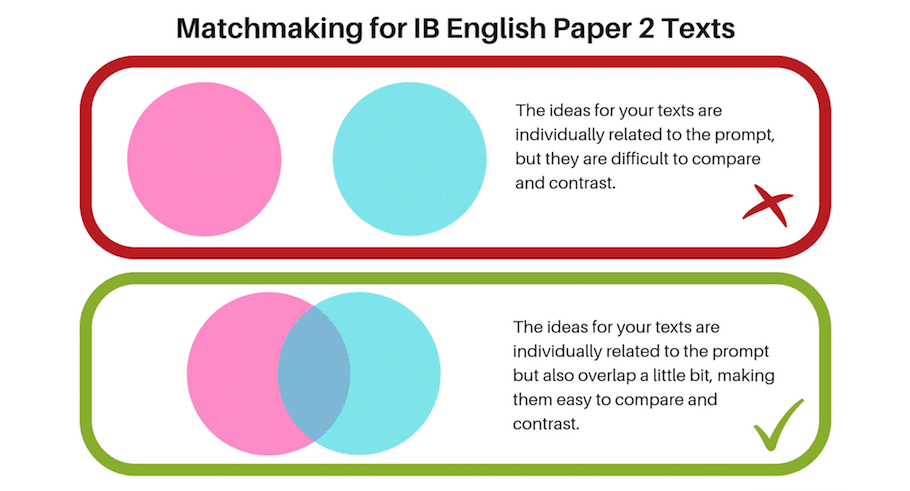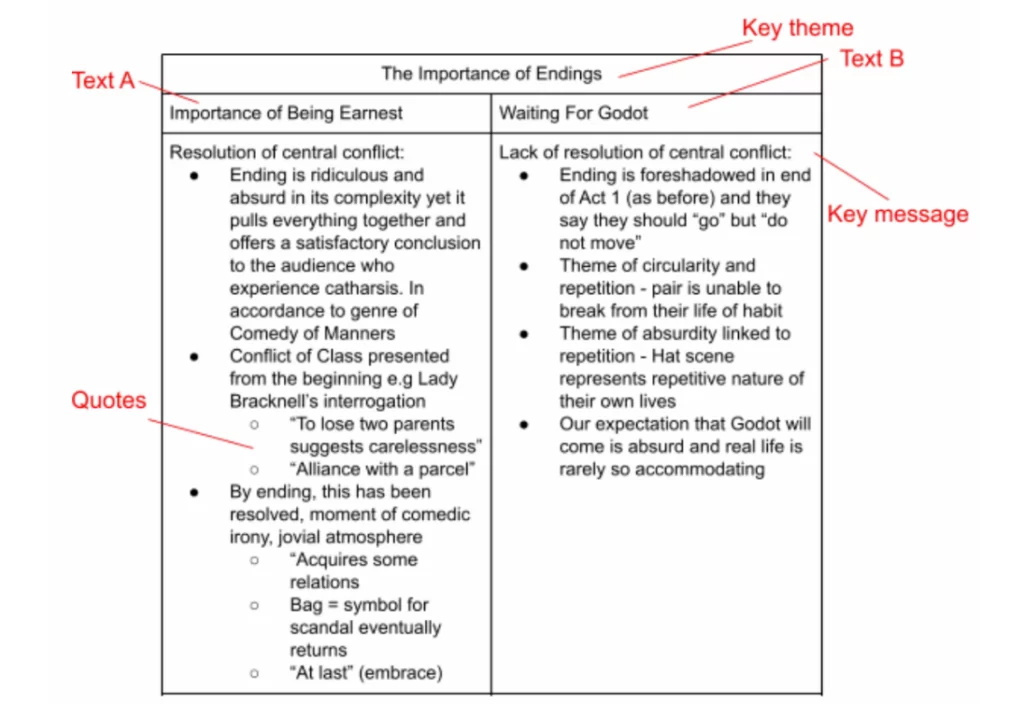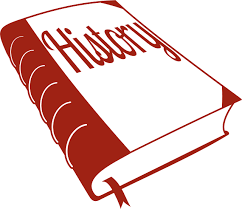IB English Paper 2 Explained
Free introductory guide to IB English Paper 2 by IB45 and IB7 graduates.
This guide will explain IB English Paper 2 and what you need to ace the exam come May or November, when the IB Gods throw you this (seemingly) insurmountable task.
If you don't know all about Paper 1 already, do check out LitLearn's amazing guide for IB English Paper 1. Paper 1 is all about on-the-spot thinking and adrenaline-pumping analysis . What about Paper 2?
Well, IB English Paper 2 is all of those things , plus extensive preparation . But don't fret! I survived Paper 2, and so have many others before you. All you need is a couple sprinkles of guidance from a seasoned Paper 2 veteran (ahem).
Meet your instructor Jackson Huang, Founder of LitLearn. His mission is to make IB English as pain-free as possible with fun, practical lessons. Jackson scored an IB45 and was accepted to Harvard, Amherst, Williams Colleges, and full scholarships to University of Melbourne & Queensland.


What is IB English Paper 2?
You're in the exam room. You stare at the page and wipe the sweat from your forehead and try to focus on the words on the page:
"We are all prisoners of ourselves.” Discuss how the sense of imprisonment shapes the meaning and the effect on the audience of at least two texts you have studied."
A Paper 2 exam consists of four of these prompts. From these options, you choose one prompt and write a 1000 to 1300-word essay on it.
How long do you get? 1 hour 45 minutes for both Standard Level (SL) and Higher Level (HL) students.
In these 1000 to 1300 words, your task is to write a comparative essay , which — you guessed it — means comparing similarities and contrasting differences between the texts you've studied in class for Paper 2 (i.e., poems, novels, plays or short stories) .
Now that you understand what a Paper 2 essay involves, let's jump into how to properly answer one of these IB English Paper 2 prompts.
How to answer a Paper 2 Question
Let's stick with the above example about the theme of “imprisonment”.
First, see that philosophical quote at the start of the prompt? It's there to spark ideas, to get the juices flowing in your brain. You don't have to refer to it directly unless the questions explicitly asks you to do so. So the take-away message here is to not be ‘imprisoned' by the philosophical quotes at the start of the prompts.
Second, notice the command term “discuss”. This is usually replaced by words like “evaluate”, “analyse”, “examine”. Don't worry about it too much : it doesn't mean anything too important, because at the end of the day you still have to analyse, you still have to compare, and you still have to contrast.
The key of the prompt
The part after the command term is the most important part of the prompt:
"[…] how the sense of imprisonment shapes the meaning and the effect on the audience […]"
Here the “sense of imprisonment” — the key of the prompt — tells us exactly what we need to write about in the essay.
Can you find the key in this next prompt?
"Compare and contrast the effectiveness of the use of irony in two or more texts you have studied."
Notice the command term “compare and contrast” and the important part after it. The key of this prompt is “ the use of irony “.
Get comfy with morphing stuff
More often than not, our texts do not contain anything explicitly related to the prompt's key, say, the theme of “imprisonment”.
Pay attention to this next paragraph…
The secret to scoring a 7 in IB English Paper 2 is to get very comfortable with bending, morphing and twisting your texts and/or the prompt so that they are as compatible with each other as possible.
There are two ways that this can be achieved:
1. Morphing existing ideas in your own texts to fit the prompt
While Jane Sherwood's (some random character) nostalgia in your Incredible Text 1 may not directly relate to “imprisonment”, you could twist the character's nostalgia into the idea that emotions can trap or “imprison” an individual in a treasured memory or a past experience.
Nostalgia and imprisonment seem like unlikely brothers at first, but with a bit of justification they look almost like identical twins.
2. Redefining the prompt (reasonably)
The key of the prompt can often be vague . For example, there was a real IB exam prompt that asked whether “male characters were more interesting than female characters.” What does “interesting” even mean?
The IB Gods are inviting you to constrain the topic in a way that works for your texts specifically. You could write in the first sentence of your introduction:
"Interest, an important part of dramatic works, is often generated by emotional conflict and the subsequent creation of tension." "
Here I have restricted the broad topic of “interesting” to the more clearly-defined topic of “emotional conflict” because this redefinition works well for the texts I've studied for IB English Paper 2. You should do the same.
In reality, you have to morph both your texts and the prompt in order to reach a snug fit between the two. Getting to this point, which all happens during the planning stage, is the most difficult part of the Paper 2 process because it requires you to know your texts so well that you can apply the ideas in your texts to different situations.
How many texts to compare and contrast?
Before we continue with this introductory guide, we need to address the age-old question of how many texts should we compare and contrast in an IB English Paper 2 comparative essay?
In the old syllabus, you had the choice to compare and contrast up to three texts.
Luckily, in the new syllabus (First assessment 2021), you don't have to make a choice: the IB requires you to compare and contrast just two texts . One less decision for you to make!
However, you are still recommended to prepare three texts, so that you have 3 possible combinations of texts to answer your prompts (Texts 1 & 2, Texts 1 & 3 and Texts 2 & 3).
Now that we agree on how many texts to compare and contrast, let's see how we can make the texts work together.
Choosing the best points across your two texts
There's an easy way, and there's a hard way.
If you want a score of 5 or below , you can simply think of two points to answer the prompt for Text 1 and two other points to answer the prompt for Text 2. Then, slap them together into different paragraphs, regurgitate some shallow comparison and contrast, and call it a comparative essay. That doesn't sound very sophisticated, does it?
On the other hand, if you want a score of 6 or 7 , you'll need to use a lot more brainpower and insight. The points that you choose for your two texts are very important, in terms of how the points relate to each other and to the prompt. The points need to have enough overlaps that similarities can be analysed, but not too much similarity because you also want to contrast differences.

What ends up happening is you enter an algorithm — a set of steps, sort of like a recipe — where you repeatedly attempt to find good points for the prompt, gradually morphing them while re-defining the prompt itself, until you reach a good plan for your Paper 2 essay.
What does a good plan generally look like?
- Your re-defined prompt has not strayed far, or at all, from the original prompt.
- The points for Text 1 fit well with the prompt.
- The points for Text 2 fit well with the prompt as well as the points your chose for Text 1.
The million dollar question is: How do we get to this optimum stage where the prompts and the texts and married so harmoniously ? The answer is brainstorming.
In these Pro lessons from our study guide, we go into detail about the exact strategies for brainstorming for Paper 2 under exam conditions, choosing the right Paper 2 essay structure, and writing a strong Paper 2 thesis.
Pro members only
How to best prepare for Paper 2
We've talked a lot about the skills and questions necessary to tackle an IB English Paper 2 prompt, but all of that happens during the exam itself. What can we do before Paper 2 to put ourselves in the best position?
- (Really) understanding your text
- Choosing great quotes for your Paper 2 (covered in a later lesson )
- Practice past Paper 2 exams
Let's go through Steps 1 and 3.
Understanding your text
IB English Paper 2 tests skills that require a deep understanding . First, to compare and contrast effectively, you need to know your texts well enough that you can find similarities and differences in the micro-details and in the macro themes, in the characters and in the techniques. Second, in order to adapt the ideas in your text to the prompt , you need to know how far you can stretch those ideas while maintaining their validity.
Without a deep understanding, you're dead in the water.
In our Paper 2 Preparation guide, we tell you exactly how to prepare your Paper 2 knowledge and notes, down to the specific questions you should be able to answer. The preparation is organized into Level 1 to Level 4 to give you a structured study roadmap for Paper 2. That way you don't get overwhelmed.
No sign up or credit card required.
Practising Past Paper 2s
The most challenging part of Paper 2 is bringing together three aspects:
- The quotes you've memorised
- Your analysis skills
- Your ability to adapt the quotes and ideas to a new prompt that you've never, ever encountered before
Grabbing that 7 in IB English Paper 2 requires that you are solid on all three fronts . You cannot just practice each of these aspects individually. Practising to plan and write Paper 2 responses ensures that you practise this core trifecta of skills together, all at once.
Practising past Paper 2s was the core of my IB English Paper 2 preparation schedule. It helped me to memorise quotes, learn which quotes are better than others, and learn certain pairs of themes, characters and techniques that work well in my texts for comparison and contrast.
By practising Paper 2s extensively, you increase your awareness of what works (and what doesn't) for your texts. Hence, the main thing you have to worry about on the day of your exam is the prompt itself--the only variable that you cannot control.
In the Paper 2 study guide, we have an exemplar IB English Paper 2 essay from a past exam: See the exemplar essay .
Questionbank
Paper 1 Practice Exams
Past Paper 1 Solutions
Paper 2 Guide
From Struggling to Succeeding in IB English
How IB English students like you have improved their grades with LitLearn Pro... Read the reviews.
IB4 to IB6 in 12 days " LitLearn helped me understand exactly what I was doing wrong and how to improve upon those mistakes. " Read the full review
IB6 to IB7 in 1 week " I ended with a 7 in English Literature HL and I am so happy about that. Thank you Jackson. " Read the full review

IB5 to Perfect 20/20 in 1 week " I managed to be the only person in my IB cohort of 120 students to get a perfect score of 20/20 " Read the full review

IB4 to IB6 in 2 weeks " The lessons are really effective in grabbing my attention and making English more fun to learn. "

IB4 to IB6 in 1 day " With just day 1 of the course, I improved immediately and overnight when I did a practice essay and improved by 4 marks from my previous grades " Read the full review
IB5 to IB7 " I got 5s since my first year of DP and now my final grade is 7! I can't thank you enough 🙂 LitLearn is truly a lifesaver. "
Not ready to sign up yet? Free
No email signup required. Access these lessons now.
Learn Analysis
The 3 basic principles essential to IB English analysis
Learn how to analyze diction for IB English
Learn how to analyze modality & imperative language for IB English
Questionbank
Try Question 7 from the Analysis Questionbank
Try Question 23 from the Analysis Questionbank
Free introductory guide to the Paper 1 guided analysis exam
The 3 ingredients you're not including in your thesis
Free introductory guide to the Paper 2 comparative analysis exam
Covers the levels of knowledge crucial to Paper 2 preparation
Individual Oral
Free introductory guide to the Individual Oral assessment
Helpful list of global issue starters to kickstart your imagination.
Higher Level Essay
Free introductory guide to the HLE assessment

Paper 2 is back! That’s right, we all have tackle this beast in May 2023, so it’s time to master the basics about comparative literary analysis. Remember that this task demands attention to authorial choices and how they shape meaning. So, when reading your literary works, pay attention to the moves the writer makes to communicate important ideas.

Part of our IBDP English A Student Toolkit , The Complete Study Guide for Paper 1 and Paper 2 includes:
- 250+ pages of updated review material!
- The best of our website videos and documents
- NEW content not available on our website
- 20 highlighted papers with examiner notes
- Discussion videos justifying marks on sample papers
- Full assortment of graphic organizers
- Sentence stems and guidance for analysis
Paper 2 Exam Review Video Course
Looking for more detailed instruction? Our Paper 2 Exam Review course leverages two short stories and guides you step-by-step through the writing process in 10 videos. In the end, you will have written a strong sample response for your selected texts. This course is for dedicated students looking to do the hard work necessary to improve their Paper 2 skills.

Part of our IBDP English A Student Toolkit , this resource includes:
- Step-by-step approach to building the Paper 2 response
- 10 asynchronous lessons and 2 hours of NEW video
- Two short stories with completed graphic organizers to model the entire Paper 2 writing process
- Blank graphic organizers to use with your Paper 2 texts
- Guidance on using generative AI for Paper 2 revision
Free Study Sessions - May 2024 Exam Prep!
We know students are gearing up for exams, and we’re eager to help. Join us for a FREE Study Session!
Each study session will last approximately 2 hours and review the key concepts needed for success on exam day. Please visit the Revision Village Study Session page for timezones and register now!
Paper 2 From Start to Finish
In this 9-video series, we’ll show you the entire process from start to finish. We’ll use two short stories as our model and follow the “we go, you go” protocol. We’ll show you the steps with our sample stories, and then encourage you to do the same steps with your chosen Paper 2 texts. In the end, you will have written an entire sample paper under our guidance. So, be sure to download and complete all the graphic organizers. Stay with us. Follow the models. Do like we do. Paper 2 success is within reach!
Unpacking the Paper 2 Task
- Document: Nuts and Bolts
- READING: Two Short Stories
Breaking Down Text 1
Document: 1-Text Organizer – TEXT 1
Breaking Down Text 2
Document: 1-Text Organizer – TEXT 2
Comparing Texts 1 and 2
Document: Comparative Organizer
Writing the Outline and Thesis
Document: Getting ready to write
Writing the Introduction:
Document: Writing the Intro
Writing Body Paragraphs.
Document: Body Paragraphs
Writing the Conclusion
Document: Paper 2 Conclusions
Scoring the Sample Paper 2
Document: Examiner Scoring
Paper 2 - Breaking Down the Skills
Sure, we understand that you want to see sample papers and examiner comments. Those are coming. However, none of those support materials matter unless you know the basics of Paper 2. Watching the videos and reading the accompanying documents will put you in an excellent position to showcase your best comparative writing on assessment day. Once you have mastered, these skills, then it’s time to move on to practice papers.
Meet the assessment and understand how to achieve success on Paper Two.
Paper 2 Details and Tips
Learn how to break down the question and get stay focused.
Document: Breaking Down the Question
Don’t forget to brainstorm and mind map!
Document: Brainstorming and mindmapping
The thesis is important…watch this video!
Document: Writing the Thesis
Block style or alternating style? Watch this video to find out.
Document: Structuring the Response
How can I get off to a strong start in this paper? We’ve got the answer.
It’s critical to write strong comparative body paragraphs. Watch this!
Mr. Giles always says to “end strong.” Watch this video and find out how!
Document: Writing Conclusions
Paper 2 - Refining Our Skills
Now that you’ve seen the entire process from beginning to end, let’s combine some of these ideas and refine our understanding of the key skills needed to master this assessment.
How can we quickly understand the question, brainstorm ideas, and get to the thesis?
Document: From Question to Thesis
Still stuck with that introduction? Here is some more support. Watch and nail this important step!
Document: Introduction 2.0
The more body paragraphs we read, the better we get at this difficult task. Watch the video!
Document: Comparative Body Paragraphs
Once you have all the skills in place, it’s time to make sure you understand all the key tips and details of this important assessment. Looking at student and teacher models is also helpful, and we will continue to populate this section as the year progresses.
In this video, notice how the student approaches the work, maintains focus, and shows complete command of references, features, and the language of the question.
Document: Paper Two - Student Sample
This video presents 10 important tips students should remember when getting ready to write Paper 2.
Document: Paper Two - Top Ten Tips
This video shows students how to formulate their own sample questions. Give it a try!
Document: Spitballing Paper 2
Watch this video right before exams. Don't miss this checklist!
Document: Paper 2 Checklist
IB English Guys
Newsletter signup.
IB English Paper Two – Everything You Need to Know To Ace the Exam

Written by Jay ayliffe
When it comes to Paper 2 for IB English Lit/Lang and Lit, there are several things that students often find challenging. Some common reactions to seeing a Paper 2 for the first time include:
- ‘The questions don’t make any sense!’
- ‘It’s too broad – I don’t know what they want me to say’
- ‘There’s no way I’m going to be able to remember the right quotes for that!’
Now, these are understandable reactions! Paper 2 can seem a little wacky and abstract, especially after the more relatively straightforward Paper 1 exam. However, if you take the time to unpack what the IB is looking for and follow the tips below, you’ll find that Paper 2 isn’t that bad. With the right preparation, it can be pretty straightforward, after all!
what is the English Paper 2 Exam?
In a nutshell, the IB asks you to write a comparative essay in response to a prompt.
Over the course of the year, whether you are a Lit or a Lang/Lit Student, you will have studied a series of texts. These may be poems, novels, plays or short stories. The Paper 2 exam allows you to draw upon these texts, using them to explore similarities and differences in relation to the central theme of the prompt. For instance,
“Not rounding off, but opening out.” Comment upon the way writers deal with the ending. In your answer, you should refer to two or three texts you have studied.”
Or how about?
Writers utilise a number of different devices within their works, including using time jumps or other non-linear structures. Considering two texts, discuss how writers use structural elements in unusual or interesting ways to shape meaning.”
Okay, these questions may seem a little mean at first, but you only have to answer one question! You will have 1.5 hours if you are a Standard Level (SL) student and 2 hours if you are an English Lit/Lang Higher Level (HL) student! (If you want some more help breaking down the question, check out this helpful blog on command terms )
The key thing to do here is to provide a structured and detailed answer that offers a balanced and meaningful discussion of both texts. Ideally, this means you are identifying 2-3 points of insight from the central questions relevant to both texts. This allows you to write 4-6 chunky paragraph s in answer to the question, in addition to the MANDATORY introduction and conclusion.
What do I need to do to prepare for the Paper 2 Exam?
First of all, planning is essential ! You will not know which questions the IB will ask you before opening your exam. However, a quick look over papers from previous years will tell you about the common themes and techniques the IB loves to ask about. Broadly, you can categorise these questions into three groups:
Why you should learn more than 2 works
Now, you have a rough idea of what they could ask you. Next, you should go back to your set of texts. Determine which combination of works would work best for you if you had to answer one of these questions.
Some students commit to just learning two works. They rely on their in-depth knowledge of these texts to answer any question that may come up. I understand their approach, but I think having at least two possible combinations of texts available is best (e.g. Text A+B, A+C, or B+C). This ensures you are best prepared to answer questions with reference to the most relevant works.
Also, you certainly don’t want to be stuck giving yourself more to do by exaggerating the importance of one theme/technique in a work because that’s the only one you know!
With these choices made, you can start compiling quotes, context and moments from the texts, which you can use as evidence. Aim for 4-5 really good points of information that you can expand upon in your essay. Even better, if you already know that, you can directly compare/contrast it with a quote/technique from the other piece of work.
For instance, with my Paper 2 exam, I found it helpful to organise my notes in the following layout:

As you can see, I have prepared a mixture of quotations and techniques that I could draw upon for this question on endings. It also allows me plenty of room to elaborate on individual points when I develop new ideas and connections.
Practising Paper 2 Questions
Practising exam questions will help you feel confident writing Paper 2s. Through practice, you will also learn to adapt your prepared notes to specific prompts.
However, before getting stuck in, spend a bit of time thinking about your introductions. An excellent introduction will outline everything you want to cover in your essay, which is key to ensuring you are heading in the right direction. Have a look at the one below and think about all the different criteria it is attempting to reach:
As in all art forms, the ending of a play usually serves to resolve its central conflict, to highlight character development and to convey to the audience a final, lasting message which summarises the major themes and motifs previously seen in the performance. Wilde’s’ Importance of Being Earnest (Importance) appears to display all of these conventions as by the end of the play, the central protagonist, Jack emerges triumphant. However, theatre, as a highly versatile and varied art form, can and has been used to explore radical modernist and postmodernist approaches to art such as in Samuel Beckett’s play Waiting for Godot where these traditional conventions of an ending are questioned. Indeed, while Wilde’s play follows the traditional conventions of an ending in theatre almost to the point of comedic lunacy, Beckett’s play seeks to completely dismiss them . This is undoubtedly the result of the two theatrical productions differing purposes and cultural contexts where Importance clearly belongs to the theatrical genre of comedy of manners while Waiting for Godot is part of the theatre of the absurd. Yet despite these radically different approaches, both highlight the importance of endings as a tool for a playwright to reiterate their main message and to provide the audience with a particular impression to take away. Sample Paper 2 Introduction by Jay
Criterion A: Knowledge, Understanding and Interpretation
- A clear statement about the writer’s choices and the effects of literary devices. It also sets up the basic structure of the essay to cover three core elements: conflict resolutions, character development and lasting message.
Criterion B: Analysis and Evaluation
- Unambiguous comparative statements about how and why the two texts differ regarding their endings, as well as share similarities.
Criterion C: Focus and Organisation
- The student introduces two key texts and their authors. There is a balanced description of both works, which the student will continue in the main body.
Criterion D: Language
- Spelling, punctuation and grammar is consistently accurate. The student uses a range of vocabulary and relevant, literary/text-specific terminology with precision.
Try to build a habit of writing essay plans with a short introduction. Doing this will help you to turn your notes and ideas into written answers more easily. It will also be an excellent resource for future exam prep! (Also, if you need help putting in the time for revision, these apps can be really helpful!)
6 Final Tips
Here are 6 final top tips to keep in mind next time you head into your Paper 2 English Exam!
- Develop Strong Time Management: Time management is crucial during the exam. Allocate a specific amount of time for planning (no more than 20 minutes) and stick to it. Make sure you give yourself enough time to talk about both works in a balanced way.
- Annotate The Question: Highlight key phrases and jot down initial thoughts. These annotations will ensure that you are sticking to the question and mean you won’t have to start with a blank page!
- Develop a Strong Thesis: In the comparative essay, a well-crafted thesis is essential (Click here to learn more about writing a brilliant thesis ). Clearly state your argument and how you will be referring to both texts in your answer. This will guide your essay and keep it focused.
- Compare Throughout: Every paragraph should start with a comparative, e.g. Both texts explore the theme of loneliness or Unlike text A, Text B utilises its setting to highlight . These topic sentences set you up to dig deeper and explore how these different writers’ choices contribute to the overall meaning and message of the texts.
- Incorporate Literary Devices: Demonstrate your knowledge of literary devices by incorporating them into your analysis. Discuss how these devices enhance the texts and support your arguments.
- Proofread and Revise: Allocate some time at the end of the exam to proofread your essays. Check for grammar, spelling, and clarity. Ensure that your ideas flow smoothly and coherently.
Final Thoughts
I hope this all helps! Remember to prepare for the prompts, test your introductions and focus on critical analysis. If you follow these tips and dedicate yourself to practise, you’ll be in the best possible position to go and ace the English Paper 2 Exam! However, if you want extra assistance and guidance, please check Lanterna’s Online Private Tutoring service . Our tutors can sit down with you 1-on-1 online and help you plan, improve and offer feedback on your Paper 2 exams.
Preparing for your IGCSE?
When preparing for IGCSE , students often seek effective strategies to enhance their chances of success. Exploring different study techniques is crucial. For instance, integrating mind mapping into your revision routine can significantly improve information retention. Additionally, consider joining or forming a study group. Collaborating with peers not only fosters a supportive learning environment but also allows for the exchange of diverse perspectives. Another valuable approach is to leverage online resources, such as educational websites and forums like Lanterna. These platforms provide access to supplementary materials and can help reinforce key concepts. By adopting these varied methods, students can tailor their preparation to suit their learning styles, setting a solid foundation for IGCSE success.
Share article links
Related Articles

- Plan for Success
- Revision Skills
- Study Skills
Top Tips for Studying Global Politics
Develop Passive Sources of Glo Po Income! Although this sounds like a Youtube advertisement for attaining financial FREEDOM by developing these TOP 10 passive income streams, I promise this is not a pyramid scheme but an excellent way to prepare for Glo Po on your way to school! You can think of your Glo Po […]
- IB - Understanding It
Finn’s Study Tips – How to Improve Languages
This week we’re hearing from Finn, one of our school presenters, about how to improve your languages. Check out Finn’s study tips below! How to Improve Languages Languages are a huge part of the IB, with both Studies in Language and Literature and Language Acquisition being compulsory areas of study. For some students, this is […]

- Student Self Care
Coping With Exam Stress (Exam Blackout)
Exam stress sucks. Excuse the bluntness, but as I tested different openers, no words rang as true as those. It sucks. Coping with it starts before you even feel it. However, before we get into all that, allow me to paint a picture to remind you just how bad it can be. You’re sitting at […]
- Support Sites
English A: Language and Literature Support Site
Practice paper 2s.
What do Paper 2 exams look like? What kinds of questions appear on the Paper 2 exam? The links below shows several Paper 2-style questions. Feel free to 'make a copy' of these Google Docs and edit them for your own purposes. The documents will change continually, as the IB makes more information and past papers available.
Study the questions in the Practice Paper 2s. What kinds of trends and patterns do you notice? If you were to make a prediction about the kinds of questions that will appear on this year's exam, what would you predict?
Compare the questions from the Practice Paper 2s to the Areas of Exploration. How are they similar or different? Check out the page on the 7 concepts from this course. How do these questions encourage you to explore these concepts ?
The Practice Paper 2s consist of four questions. Actual IB Paper 2 may not be organised this way, but these practiced questions are designed to help you prepare for the following types of questions:
The first question is about a stylistic or structural feature. These types of questions lend themselves well to Criterion B: analysis and evaluation. If the feature is about 'narrative perspective', for example, you may want to write body paragraphs on related features, such as flashbacks, dialogue and characterisation. As always, connect form to meaning, while answering the question.
The second question is intentionally difficult. The IB has been known to include questions that require deeper understanding of literature and contexts. Questions about how the meaning of a work has evolved over or how the author 's life has influenced the work are difficult if not impossible to answer. If you do not feel confident exploring answering these types of questions, avoid them!
The third question is often about some kind of conflict or struggle. These struggles may be between competing concepts , such as 'new' and 'old', or juxtaposed settings, like 'rural' and 'urban', or characters, such as 'men' and 'women'. As you prepare your works, consider conflict, paradox and juxtaposition. You may be able to do something with these ideas or your Paper 2 response.
The fourth question in the Practice Paper 2s relates to an abstract concept, such as justice, faith, home, wealth or identity. These may or may not be related to one of the 7 concepts from the course: identity, communication, creativity, representation, transformation, perspective or culture. Discussing literary works in relation to these concepts is good preparation for Paper 2.
Even though you will not know the essay questions before the exam, you can still prepare for the exam. You can practice connecting works, by making diagrams like the diagram on this page . You can practice unpacking P2 questions , using activities like the one on this page . You'll notice on both pages that novels, plays and graphic novels tend to work well for Paper 2 responses, as question often ask about setting, events, characters, conflicts and other literary features of these literary forms.
Related pages
- Paper 2 instructions
- Guide and outline: Areas of exploration
- Guide and outline: Concepts
- Paper 2 example: The Great Gatsby and The Reluctant Fundamentalist
IBDP English A: Language & Literature
Website by Neil Allen
Updated 7 March 2024
P1 - Examination Questions
P2 - examination questions, individual oral.
- The Learner Portfolio
Extended Essay
Essential knowledge, home .
- Paper 1 - Examination Questions
- Paper 1 - M22 Responses
- Paper 1 - M21 Responses
- Paper 2 - Examination Questions
- Paper 2 - Exemplar Response
- Paper 2 - Planning during the Exam
- About the Author, this Site & the IB Diploma
- The Course at a Glance
- A Conceptual Framework
- May 2022 - Examinations in the Epoch of Corona
- Marking Criteria - The Basics
- Paper 1 - Frequently Asked Questions
- Paper 1 - Structuring a Guided Textual Analysis
- Paper 1 - Video Guide to Textual Analysis
- Paper 1 - Writing Guiding Questions
- Paper 1 - Student Examples: Comic Strip
- Paper 1 - More Samples
- Paper 1 - Dealing with Infographics
- Paper 1 - Examination Strategy
- Paper 2 - Frequently Asked Questions
- Paper 2 - Making Analytical Points
- Paper 2 - Features of the Literary Genre
- Paper 2 - Structuring an Essay
- Paper 2 - Unpacking the Criteria
Paper 2 - Examination Strategy
- Individual Oral - Frequently Asked Questions
- Individual Oral - Establishing a Global Issue
- Individual Oral - Organising the 10 minutes
- Individual Oral - More Student Samples
- Individual Oral - Boiling it down
- Individual Oral - To mock, or not to mock?
- Individual Oral - Global issue?
- Individual Oral - Preparation
- Individual Oral - Body of Work Preparation
- Individual Oral - Text Choices
- HL Essay - The Basics
- HL Essay - Choosing a Topic
- HL Essay - Great Examples (Literature)
- HL Sample: Non-literary Body of Work - George Monbiot's Essays
- HL Essay - Gaining Level 7
- The Learner Portfolio - Reflections
- The Learner Portfolio - Classroom Activities
- Extended Essay - Choosing your Category
- Extended Essay - Literary Examples
- Extended Essay - Non-Literary Examples
- What is a theme?
- Words and Phrases for Writing about Text
- What is intertextuality (and why does it matter)?
- Inquiry through Essential Questions
- The Language of Photography
- Glossary of Terms
- Understanding Command Terms
- Marking Criteria

Paper 2 is a comparative essay . In the exam, you will be asked four questions. You choose (only) one of these questions and write an academic essay. In responding to your chosen question, you compare and contrast two literary works that you have studied during your course, but without having access to those works in the exam room. You should illustrate your essay with detailed references to your studied works. This website helps you write excellent academic essays in challenging exam conditions, taking you from the planning process to the final product.
Essential Questions
On which literary works must the Paper 2 essay be based?
Does the paper 2 essay need to be comparative, and how should it be structured, does the paper 2 essay need quotations, how do we analyse and evaluate literary works, what literary features are required to be successful, what does a good essay look like.
This section will:
- Give you many more details about this assessment and what is expected of you;
- Give you clear guidance on what it is to analyse and evaluate, and how you can show this in writing;
- Give you advice on structuring an essay;
- Show you samples of student work, examiners' marks, and give you the opportunity to assess work for yourself to help your understanding of what is required in the future.

Paper 2 - The Basics
This page provides you with a clear and basic introduction to Paper 2, a comparative academic essay that focuses on two literary works that you have studied during your course.. Later pages provide you with tips, models, and activities to help...

Paper 2 - Analysis and Evaluation
What is analysis and evaluation?

Paper 2 - Great Examples
Paper 2 offers opportunities to succeed: students can study the works of literature, and prepare their skills in applying understanding to generic non-work specific questions.
This page considers the question of how best to use my time during the examination for Paper 2.
Which of the following best describes your feedback?
Sample exam papers
The following are examples of actual past examination papers, and a selection of specimen examination papers. They are provided for information only.
Join the IB's global alumni network
The IB is extremely proud of its graduates, and the alumni network connects them with one another and with the IB community.
Members of the alumni network receive opportunities to get involved in IB projects and to share their stories.
Students who will graduate in the next two years are encouraged to join.
- Join the network


We use cookies on this site. By continuing to use this website, you consent to our use of these cookies. Read more about cookies
IBDP English A Literature
Website by Mark Beverley & David White
Updated 27 March 2024
InThinking Subject Sites
Subscription websites for IB teachers & their classes
Find out more
- www.thinkib.net
- IBDP Biology
- IBDP Business Management
- IBDP Chemistry
- IBDP Economics
- IBDP English A: Language & Literature
- IBDP English B
- IBDP Environmental Systems & Societies
- IBDP French B
- IBDP Geography
- IBDP German A: Language & Literature
- IBDP History
- IBDP Maths: Analysis & Approaches
- IBDP Maths: Applications & Interpretation
- IBDP Physics
- IBDP Psychology
- IBDP Spanish A
- IBDP Spanish Ab Initio
- IBDP Spanish B
- IBDP Visual Arts
- IBMYP English Language & Literature
- IBMYP Resources
- IBMYP Spanish Language Acquisition
- IB Career-related Programme
- IB School Leadership
Disclaimer : InThinking subject sites are neither endorsed by nor connected with the International Baccalaureate Organisation.
InThinking Subject Sites for IB Teachers and their Classes
Supporting ib educators.
- Comprehensive help & advice on teaching the IB diploma.
- Written by experts with vast subject knowledge.
- Innovative ideas on ATL & pedagogy.
- Detailed guidance on all aspects of assessment.
Developing great materials
- More than 14 million words across 24 sites.
- Masses of ready-to-go resources for the classroom.
- Dynamic links to current affairs & real world issues.
- Updates every week 52 weeks a year.

Integrating student access
- Give your students direct access to relevant site pages.
- Single student login for all of your school’s subscriptions.
- Create reading, writing, discussion, and quiz tasks.
- Monitor student progress & collate in online gradebook.
Meeting schools' needs
- Global reach with more than 200,000 users worldwide.
- Use our materials to create compelling unit plans.
- Save time & effort which you can reinvest elsewhere.
- Consistently good feedback from subscribers.
For information about pricing, click here
Download brochure
See what users are saying about our Subject Sites:
Find out more about our Student Access feature:
- Paper 2: sample responses
- Paper 2: Comparative essay
Sample paper 2 responsesLinked from this page are some paper 2 sample responses with teacher marks and comments, including a new sample that has just been added. We will be looking to add more examples, covering a range of different questions and different literary forms. It is important for teachers and students to look at a range of examples in order to become familiar with the expectations of this examination and...
To access the entire contents of this site, you need to log in or subscribe to it.
Alternatively, you can request a one month free trial .

Choose Your Test
Sat / act prep online guides and tips, every ib history past paper available: free and official.
International Baccalaureate (IB)

Taking a practice IB History exam before the actual exam will help you familiarize yourself with the length, style and format of the test. In this guide, we explain the IB History test format and link to the best past papers available . At the end, I'll explain how best to use these IB History past papers for your studying.
Disclaimer: these free exams should be used at your own risk. The exams are not authorized by the IBO and were most likely put up online without the IBO's consent.

2022 IB Exam Changes Due to COVID-19
Because of the ongoing COVID-19 (coronavirus) pandemic, the IB has decided to extend the adaptations which were put in place for 2021 to 2022. May 2022 IB assessments will have two routes, exam and non-exam, depending on which your school chooses. Stay up to date with the latest information on what this means for IB diplomas, course credit for IB classes, and more with our our IB COVID-19 FAQ article .
IB History Exam Format
The IB History course was completely revamped in 2017. Now, there are five prescribed subjects:
- Military leaders
- Conquest and its impact
- The move to global war
- Rights and protest
- Conflict and intervention
Your teacher will choose one that you'll cover, and you'll be tested on this for paper 1 (one hour in length).
There is also a list of twelve world history topics. For paper 2 (1.5 hours), you'll cover two of these:
- Society and economy (750-1400)
- Causes and effects of medieval wars (750-1500)
- Dynasties and rulers (750-1500)
- Societies in transition (1400-1700)
- Early Modern states (1450-1789)
- Causes and effects of Early Modern wars (1500-1750)
- Origins, development and impact of industrialization (1750-2005)
- Independence movements (1800-2000)
- Evolution and development of democratic states (1848-2000)
- Authoritarian states (20 th century)
- Causes and effects of 20 th -century wars
- The Cold War: superpower tensions and rivalries (20 th century)
For students taking IB History HL, they'll have a final paper (paper 3) that is 2.5 hours and will cover one of the four Depth Studies:
- History of Africa and the Middle East
- History of the Americas
- History of Asia and Oceania
- History of Europe
Current IB History Papers
The best source for up-to-date IB History past papers is the IBO store . To find them, search "history exam paper." Each paper and each mark scheme cost about $3 for older tests or $4 for more recent tests. That means a full test's worth will cost you about $12-$16 for SL or $18-$24 for HL. (While the IBO site has a sample SL/HL paper 2 available for free , it's from November 2005, predating the most recent syllabus updates.)
Currently, the IB store has papers from 2011 through 2018, but we recommend only purchasing papers from May 2017 tests or later, as those are the exams that match the new syllabus. Be sure to check not just the test date but also the depth-study area for each exam paper and mark scheme you purchase to make sure they match up—you wouldn't want to purchase a History of Asia and Oceania exam paper but a History of Europe mark scheme!
Additionally, we've found these IB History past papers available for you to study from. They are from 2017 and follow the same format as current IB History exams, so you can be sure they'll be close to what you actually see for your own paper. Because they're not on the official IB site, however, we urge you to use these with caution.
- Paper 1 prompts and grading
- Paper 2 prompts

Alan O'Rourke / Flickr
Old IB History Papers (Pre-2017)
These papers are before the IB History course was revamped in 2017 , so the topics the papers cover won't be exactly what you see for your course. However, these can still be a useful way to get a better sense of the kinds of papers you'll see for IB History and the types of information you'll be expected to know.
Paper 1 Paper 1 Source Booklet Paper 2 Paper 3
Past IB History Papers (2017-Now)
Because the test was revamped fairly recently, there aren't as many examples of past papers available. Having said that, IB Resources has the most—and best—examples of recent past IB History papers. Check out the Individuals & Societies section of the website to find the history papers you're looking for.
One big caveat: these papers aren't vetted, so the quality will vary greatly. Make sure you don't use these as your only IB prep sources!

How to Use IB History Past Papers
Each full IB History practice exam will take you 2.5 hours for SL or 5 hours for HL, so you need to get the most out of each test. Below are some pointers for your practice.
Tip 1: Take Papers 1 and 2 Consecutively (If Possible)
For both IB History SL and HL, papers 1 and 2 are administered one after the other, requiring you to maintain your concentration and testing stamina for 2.5 hours. Part of practicing for the test means building up your testing endurance so that you're not making careless errors or losing focus towards the end of the tests.
IB History HL includes a third, 2.5-hour paper administered on a second day of testing, which you should also try to match in your practice schedule. Having a test spread out over multiple days means that you can't just cram and then immediately forget everything after you've finished papers 1 and 2; you'll need to practice retaining information even after the 2.5-hour slog of the first day's papers 1 and 2.
If you don't have time in your schedule for a full 2.5-hour session (or for two 2.5-hour sessions two days in a row for HL), then splitting papers 1 and 2 up over multiple days is OK. Just make sure that in your studying you follow this next tip:
Tip 2: Time Yourself on Each Paper
You must get used to the timing pressures of this exam. The time allowed per paper is:
IB History SL
- Paper 1—1 hour
- Paper 2—1 hour 30 minutes
IB History HL
- Paper 3—2 hour 30 minutes
Don't give yourself extra time. If you do, you will not figure out your pacing for the real exam and will likely score higher than you actually will the day of the test. I want these practice exams to give you an accurate picture of your actual test score.

Stephan Baum/ Wikimedia
Tip 3: Review Your Mistakes!
When you complete your exam (end of Paper 2 for SL or end of Paper 3 for HL), check every mistake. If you skip this step, you will not learn from your errors, and you'll keep making them.
You need to take at least an hour reviewing your exam. I know this may seem like a lot of time, but you want quality practice. If you only end up taking two practice tests with detailed review, you will be better prepared than if you took six tests with no review.
What's Next?
Taking IB History right now? Round out your studying with our complete IB History notes and study guide .
Ready to jump into some US History topics? Learn about the Platt Amendment and Ida Lewis . If you're more interested in political history, be sure to also check out our articles on checks and balances in the US government and how the executive branch can check the judicial branch .
Or perhaps you're interested in learning something that might not come up in history class? Find out more about David Ghantt and the Loomis Fargo heist , the complete history of hip hop , and the competing claims for invention of the 3-hole punch .
Learn more about the IB course offerings:
- The Complete List of IB Courses and Classes
- Which IB Courses Can I Take Online? Can I Get an Online IB Diploma?

Thinking ahead to college applications?
If you’re a freshman, sophomore, or junior worried about college admissions, our world-class admissions counselors can help. We know exactly what kinds of students colleges want to admit and can make sure your profile shines.
PrepScholar Admissions is the world's best admissions consulting service. We've helped thousands of students get into their top choice schools , from state colleges to the Ivy League.
Join our mentoring program today:

As an SAT/ACT tutor, Dora has guided many students to test prep success. She loves watching students succeed and is committed to helping you get there. Dora received a full-tuition merit based scholarship to University of Southern California. She graduated magna cum laude and scored in the 99th percentile on the ACT. She is also passionate about acting, writing, and photography.
Student and Parent Forum
Our new student and parent forum, at ExpertHub.PrepScholar.com , allow you to interact with your peers and the PrepScholar staff. See how other students and parents are navigating high school, college, and the college admissions process. Ask questions; get answers.

Ask a Question Below
Have any questions about this article or other topics? Ask below and we'll reply!
Improve With Our Famous Guides
- For All Students
The 5 Strategies You Must Be Using to Improve 160+ SAT Points
How to Get a Perfect 1600, by a Perfect Scorer
Series: How to Get 800 on Each SAT Section:
Score 800 on SAT Math
Score 800 on SAT Reading
Score 800 on SAT Writing
Series: How to Get to 600 on Each SAT Section:
Score 600 on SAT Math
Score 600 on SAT Reading
Score 600 on SAT Writing
Free Complete Official SAT Practice Tests
What SAT Target Score Should You Be Aiming For?
15 Strategies to Improve Your SAT Essay
The 5 Strategies You Must Be Using to Improve 4+ ACT Points
How to Get a Perfect 36 ACT, by a Perfect Scorer
Series: How to Get 36 on Each ACT Section:
36 on ACT English
36 on ACT Math
36 on ACT Reading
36 on ACT Science
Series: How to Get to 24 on Each ACT Section:
24 on ACT English
24 on ACT Math
24 on ACT Reading
24 on ACT Science
What ACT target score should you be aiming for?
ACT Vocabulary You Must Know
ACT Writing: 15 Tips to Raise Your Essay Score
How to Get Into Harvard and the Ivy League
How to Get a Perfect 4.0 GPA
How to Write an Amazing College Essay
What Exactly Are Colleges Looking For?
Is the ACT easier than the SAT? A Comprehensive Guide
Should you retake your SAT or ACT?
When should you take the SAT or ACT?
Stay Informed
Get the latest articles and test prep tips!
Looking for Graduate School Test Prep?
Check out our top-rated graduate blogs here:
GRE Online Prep Blog
GMAT Online Prep Blog
TOEFL Online Prep Blog
Holly R. "I am absolutely overjoyed and cannot thank you enough for helping me!”

AQA GCSE English Language Paper 2 – Revision Guide
Welcome to the complete revision guide for AQA GCSE English Language paper 2. Keep reading for our top tips and advice on each question, as we break down the English Language paper 2. Find out what to expect from each question, how to revise effectively and how to get top marks.
To revise effectively for GCSE English Language you do need to set aside plenty of revision time. Our tutors always hear students say that they don’t need to – or even can’t – revise for English Language. That’s all wrong. You must revise for the subject, you just need to know how.
You should focus on:
- understanding how each of the papers is structured;
- knowing what the examiner is looking for on each question; and
- doing lots of practice questions and marking your own work to improve quickly.
You can also find our guide to AQA GCSE English Language Paper 1 here .
Alongside our revision guides, our team of top English tutors provide one-to-one lessons designed specifically to help you succeed in the exams. Contact us directly to book your first lesson.

Overview of the paper
AQA GCSE English Language paper 2 explores non-fiction writers’ viewpoints and perspectives. Section A consists of 4 questions, in which you’ll analyse two linked sources across different time periods and genres. Section B consists of a single big question where you will write your own text for a specified audience, purpose and form. Here you’ll provide your own perspective on a task related to the theme that was introduced in section A.
There is 1 hour 45 minutes to complete the paper. There are 80 marks at stake, making up 50% of your GCSE English Language qualification.
AQA English Language Paper 2 Section A
Read the sources carefully – spend 15 mins here.
Make sure you spend the first 10-15 minutes of the exam carefully reading the sources. You should:
- read the texts carefully and thoroughly;
- read the questions; and
- highlight important parts of the sources for use later.
Question 1 – select 4 true statements – spend 5 mins here
The first question should be fairly straightforward but do ensure you take a few minutes to think it through carefully. You’ll be asked to focus on a small part of source A and select four true statements from a selection of eight. Be a little careful here because there will be some statements that you think could possibly be true, but you should be able to point to where you’re told this in the text for it to be true. That will confirm your choice.
Things to remember on this question:
- focus only on the specific section of source A;
- pinpoint where in the text the writer tells you each of your choices; and
- don’t spend more than 5 minutes here.
Question 2 – summary of differences or similarities – spend 10 mins here
For question 2 you need to refer to both source A and B. The question is out of 8 marks. You’ll be asked to write a summary of the differences or similarities between something/ someone in source A and something/ someone in source B. You don’t need to worry about analysing language or structure here, simply identify 3-4 differences or similarities (focused on what is in your specific question). Summarise each of the differences in turn, with quotations, and explore perceptive inferences from both texts. Inferences are not explicitly said, they are the extra layers of understanding that are suggested by the writer and which you pick up from “reading between the lines”. To get top marks you need to examine what the writers imply about the issue.
Things to remember for this question:
- you do not need to analyse any language or structure here;
- focus on explaining perceptive inferences from both texts to explain the key differences or similarities; and
- cover three or four points with quotations.
Question 3 – the writer’s use of language to describe something – spend 12 mins here
There are 12 marks up for grabs here. You will always be asked, ‘how does the writer use language to describe…’ followed by something specific from part of one source. You need to analyse the effects of the writer’s choice of language. Make around four points and explore them using good quotations and sophisticated use of subject terminology. The language features you pick out could include things like: metaphors, similes, alliteration, onomatopoeia, personification, sentence forms and the use of specific types of words or phrases.
- focus on analysing the effects of the writer’s choice of language;
- use accurate subject terminology by identifying specific language techniques; and
- cover four points with excellent quotations.
Question 4 – comparing different perspectives – spend 18 mins here
Question 4 is a bigger, extended question with 16 marks at stake. As such, the examiner is expecting more from you. The question will always ask you to “compare how the writers convey their different perspectives/attitudes about…” something specific to the sources. You need to perceptively compare their different perspectives or attitudes, and most importantly, compare the methods the writers use to convey their different perspectives or attitudes. Everything is in scope here, so you can analyse any methods, including both language and structure. Aim to write about four good comparison points. These four paragraphs will cover both sources (in order to compare them properly) and they’ll be more developed than in the earlier questions.
- keep focused on the specific task in the question;
- analyse the methods used by the writers to convey their attitudes to the topic; and
- consider both language and structure.

AQA GCSE English Language Paper 2 Section B
Question 5 – writing to present a viewpoint – spend 45 mins here.
Question 5 provides your opportunity to show the examiner how you can write effectively to explain your point of view on a specific issue. There are a whopping 40 marks up for grabs here, so make sure you spend the full 45 mins doing this question. You’ll be given a statement on an issue related to those discussed in section A. Your task will be to write in a specific form, for a specific audience, to present your point of view on the issue. You might be asked to write a newspaper article, letter or speech, amongst other forms. The marks are allocated specifically, with 24 marks available for content and organisation and 16 marks for technical accuracy (spelling, punctuation and grammar).
To do well in this question we recommend spending the first 5 minutes thinking deeply about the task and planning your answer. This plan will ensure your answer has a good, consistent argument and structure. When writing, make sure your style and use of language reflects the form and audience of the task. Use ambitious vocabulary, language techniques and structural features to really demonstrate what you can do. You should, of course, always ensure your spelling, punctuation and grammar are spot on. Leave a couple of minutes at the end to double check your technical accuracy.
- match your style of writing to the purpose and audience of the task;
- plan your answer first;
- leave the full 45 minutes to complete the task fully; and
- use ambitious vocabulary, language and structural features to present your viewpoint and really show the examiner what you can do.
Now Keep revising for your AQA GCSE English Language Paper 2
The key thing after reading this guide is to practise. Do as many past papers and practice questions as you can. Mark your own work and try answering the questions again focusing on areas to develop. You can find all of the past AQA papers here . For fully personalised advice and support, why not try a lesson with one of our online GCSE English experts? Simply drop us a quick message and we’ll arrange your free tutoring consultation.

Paper 2 Marked Answers
Looking at examples of marked answers is a great way to help you understand the skills you need to show for each question and the level of detail you need to include. on each answer you'll see annotations from the examiner in the margin. these show where the student has included a skill and at what level. at the end you'll see the final mark., these are example answers from the june 2019 paper 2. you can find the whole paper here ..
4 Examples of Academic Writing
#scribendiinc
Written by Scribendi
The best way to understand what effective academic writing looks like is to review academic writing examples.
Let's begin with four of the most common types of academic writing: research proposals, dissertations, abstracts, and academic articles. We'll be examining each type of writing and providing academic writing samples of each.
Whether you aim to earn funding for a passion project or are stymied by how to format an abstract, these academic writing examples will help you nail your next undertaking.
Academic Writing Example 1: Research Proposals
A research proposal is an outline of the proposed research of a PhD candidate, a private researcher, or someone hoping to obtain a research grant .
Your proposal should put your best foot forward: It details your intended research question and how it relates to existing research, makes an argument for why your research should be chosen for advancement or funding, and explains the deliverables you hope to achieve with your research.
A more detailed look at what proposal writing is and what goes into a research proposal may also be beneficial. Every proposal is different because every project is different. Proposal requirements also differ according to the university or funding agency that reviews the proposal.
Research Proposal Structure
A cover letter summarizing your proposal and showcasing why you should be chosen
An introduction or abstract
An explanation of the background, purpose, and significance of your research
A research plan or methodology that includes a timeline (a Gantt chart may be beneficial)
A projected budget, if applicable
Academic Writing Sample: Research Proposal Excerpt
Building on the work of the three foundational sociological theorists—Marx, Weber, and Durkheim—and Mark Traugott's theory of the "insurgent barricade," this proposed research will analyze the appearance, use, and disappearance of barricade warfare as an effective battle strategy.
Focusing on these three theorists, this research will determine which theory or theories best explain the life cycle of barricade warfare, focusing in particular on its disappearance. A brief but comprehensive history of barricade warfare will be provided in addition to the theoretical explanations of barricade warfare's utility.
Research Proposal Writing Tips
Before you format your proposal, contact your targeted university, private organization, or funding agency to confirm what they require for proposals. Then, try to follow this format as closely as possible.
Be detailed when outlining your goals and your funding needs. Connect the objectives of the research to the resources you're requesting.
Be realistic in what you ask for as far as resources—don't ask for more or less than you need, and show evidence to justify your choices.
Don't dedicate too much text in your proposal to describing past research. A summary of key points, arguments, theories, and how your research will build on them should suffice.
Remember that no matter how good your proposal is, it might be rejected. You're likely up against dozens or even hundreds of other candidates who have equally sound proposals. Don't be discouraged if this happens. See it as a learning opportunity for your next proposal.
Academic Writing Example 2: Dissertations
A dissertation is a body of writing that represents original research and is generally written as part of a PhD or master's program.
Typically, it builds on previous research in the field to make a significant contribution or advancement. You may benefit from more detailed information on what a dissertation is , how to write a dissertation , and how to edit a dissertation .
Dissertation Structure
Introduction/background and the significance of the study
Literature review
Methodology
Results/findings
Conclusion/contribution to the body of research
Academic Writing Sample: Dissertation Excerpt
There are two options for choosing a unit of analysis for this phenomenon: the social artifact (erected barricades) or the social interaction (the collaboration of insurgents engaged in barricade warfare). The best choice is social interaction.
Most individual occurrences of barricade warfare involve the construction of more than one barricade, and the number of barricades is not necessarily a valid indicator of the sociological magnitude of an insurgence. The most relevant choice is an insurgence, the event of a conflict involving barricade warfare.
Dissertation Writing Tips
Remember to bear in mind the significance of your study. It doesn't have to be paradigm shifting, but you want to infuse the dissertation with reminders of why your research is important.
Don't get bogged down in trying to show that your research is one of a kind or uniquely contributive to the body of research. It likely isn't, and it's more effective to show how you are building on previous research .
Remember to check with your college or university to ensure that you're formatting your dissertation according to the school's expectations.
Ask your advisor questions when you need to.
Be prepared to make alterations to your dissertation according to your thesis committee's suggestions. This doesn't mean you did a bad job—it just means there's room for improvement.
Academic Writing Example 3: Abstracts
The abstract is actually a component of other forms of academic writing, such as scholarly articles and dissertations. The abstract acts as a comprehensive outline of your paper in paragraph form.
Abstract Structure
Results
You may want to read more about what abstracts are and why they are important in preparing yourself for writing one.
Academic Writing Sample: Abstract
Barricade warfare has occurred across several spectra, but most notably, it occurred almost exclusively in a 300-year period between the 16th and 19th centuries. Each instance had an inciting incident, but a common thread was the culture of revolution: a revolutionary tradition based on the belief that injustice was being carried out and that, in this case, barricade insurgence was the way to resolve it.
This study uses the theories of Karl Marx and Emile Durkheim to analyze barricade warfare, its appearance, and its disappearance. Ultimately, neither theory can independently explain this phenomenon.
Marx offers a reasonable explanation for why barricade warfare may have died, but his theory is difficult to test empirically and fails to explain the absence of recurrences. Conversely, Durkheim's theory is much easier to observe and can explain why barricade warfare has not experienced a renaissance. However, he offered no reason as to why it died in the first place.
These two theoretical orientations complement each other nicely and, ultimately, neither can stand alone.
Notice that this abstract comes in at under 200 words (a common limit) but nevertheless covers the background of the study, how it was approached, and the results and conclusions of the research.
If you are struggling to meet a word count, check out 10 Academic Phrases Your Writing Doesn't Need .
Abstract Writing Tips
Be conscious of your word count. Stay under the limit.
Check with your school or target journal to make sure special formatting is not required.
Don't use abbreviations or citations in the abstract.
Don't simply restate your thesis or copy your introduction. Neither of these is an abstract.
Remember that your abstract often gives readers their first impressions of your work. Despite its short length, it deserves a lot of attention.
Academic Writing Example 4: Articles
Academic articles are pieces of writing intended for publication in academic journals or other scholarly sources. They may be original research studies, literature analyses, critiques , or other forms of scholarly writing.
Article Structure
Abstract and keywords
Introduction
Materials and methods
References and appendices
Academic Writing Sample: Article Excerpt
"Those great revolutionary barricades were places where heroes came together" (Hugo, 2008). This description by Victor Hugo of the 1832 June Rebellion in Paris comes from his seminal work of fiction, Les Miserables.
Although the account is fictionalized, it is deeply representative of what historian Mark Traugott (2010, p. 225) terms the "culture of revolution." This spirit of heroic response to social injustice swept across Europe during the second half of the millennium and was characterized in part by barricade warfare.
The phenomenon of the insurgent barricade has essentially disappeared, however, leaving no trace of its short-lived but intense epoch, and the question of why this happened remains a mystery. The theories of Karl Marx and Emile Durkheim, when taken together, provide a compelling explanation for the disappearance of barricade warfare, and the tenets of each theory will be examined to explain this phenomenon.
Article Writing Tips
Follow these detailed steps for writing an article and publishing it in a journal .
Make sure that you follow all of your target journal's guidelines.
Have a second set of educated eyes look over your article to correct typos, confusing language, and unclear arguments.
Don't be discouraged if your article is not chosen for publication. As with proposal writing, you are up against countless others with equally compelling research.
Don't be discouraged if the journal asks you to make changes to your article. This is common. It means they see value in your article, as well as room for improvement.
Whether you're applying for funding, earning an advanced degree, aiming to publish in a journal, or just trying to cram your 4,000-word study into a 150-word abstract, hopefully these academic writing examples have helped get your creative juices flowing.
Go out there and write! With these academic writing samples at your side, you are sure to model your academic writing appropriately.
Achieve Your Academic Goals
Hire an expert academic editor , or get a free sample, about the author.

Scribendi's in-house editors work with writers from all over the globe to perfect their writing. They know that no piece of writing is complete without a professional edit, and they love to see a good piece of writing transformed into a great one. Scribendi's in-house editors are unrivaled in both experience and education, having collectively edited millions of words and obtained numerous degrees. They love consuming caffeinated beverages, reading books of various genres, and relaxing in quiet, dimly lit spaces.
Have You Read?
"The Complete Beginner's Guide to Academic Writing"
Related Posts

10 Academic Phrases Your Writing Doesn't Need

21 Legit Research Databases for Free Journal Articles in 2022

Grant Writing Basics
Upload your file(s) so we can calculate your word count, or enter your word count manually.
We will also recommend a service based on the file(s) you upload.
English is not my first language. I need English editing and proofreading so that I sound like a native speaker.
I need to have my journal article, dissertation, or term paper edited and proofread, or I need help with an admissions essay or proposal.
I have a novel, manuscript, play, or ebook. I need editing, copy editing, proofreading, a critique of my work, or a query package.
I need editing and proofreading for my white papers, reports, manuals, press releases, marketing materials, and other business documents.
I need to have my essay, project, assignment, or term paper edited and proofread.
I want to sound professional and to get hired. I have a resume, letter, email, or personal document that I need to have edited and proofread.
Prices include your personal % discount.
Prices include % sales tax ( ).


IMAGES
VIDEO
COMMENTS
This guide will explain IB English Paper 2 and what you need to ace the exam come May or November, when the IB Gods throw you this (seemingly) insurmountable task. If you don't know all about Paper 1 already, do check out LitLearn's amazing guide for IB English Paper 1. Paper 1 is all about on-the-spot thinking and adrenaline-pumping analysis.
Paper 2 From Start to Finish. In this 9-video series, we'll show you the entire process from start to finish. We'll use two short stories as our model and follow the "we go, you go" protocol. We'll show you the steps with our sample stories, and then encourage you to do the same steps with your chosen Paper 2 texts.
Sample Paper 2 Introduction by Jay. Criterion A: Knowledge, Understanding and Interpretation. A clear statement about the writer's choices and the effects of literary devices. It also sets up the basic structure of the essay to cover three core elements: conflict resolutions, character development and lasting message.
8 Reasons Why You Should Take IB Over AP. With good preparation, a few memorized quotes, and a solid knowledge of the themes of your novels, it is very much possible to score a 7 on the English Paper 2 Examination. I'm going to give you a basic outline of how to structure your essay and also tell you a nice way to organize your quotes for t.
The Practice Paper 2s consist of four questions. Actual IB Paper 2 may not be organised this way, but these practiced questions are designed to help you prepare for the following types of questions: The first question is about a stylistic or structural feature. These types of questions lend themselves well to Criterion B: analysis and evaluation.
This video presents a strong sample Paper 2 student response.Handout below:https://drive.google.com/file/d/1253mTNY7Anua3AD1qy7z3HyrKfGhRUcg/view?usp=sharing
Paper 2 is a comparative essay.In the exam, you will be asked four questions.You choose (only) one of these questions and write an academic essay.In responding to your chosen question, you compare and contrast two literary works that you have studied during your course, but without having access to those works in the exam room. You should illustrate your essay with detailed references to your ...
English A: literature paper 1 and marking notes (first assessment 2021) [512KB] English A paper 2 [197KB] Group 2: Language acquisition: Language B. English B HL specimen paper 2 audio [84,3 MB] English B SL specimen paper 2 audio [61,7 MB] English B specimen papers and markschemes (first assessment 2020) [2.1MB] Group 3: Individuals and societies
Paper 2: sample responses. Sample paper 2 responsesLinked from this page are some paper 2 sample responses with teacher marks and comments, including a new sample that has just been added. We will be looking to add more examples, covering a range of different questions and different literary forms. It is important for teachers and students to ...
Paper 2 (1 hour 45 minutes) Writers' viewpoints and perspectives Section A -Reading Two sources -non-fiction and literary non-fiction Q1 -Select statements that are true -Source A Q2 -Summary of given topic in Sources A & B Q3 -Use of language -Source A/B
Current IB History Papers. The best source for up-to-date IB History past papers is the IBO store. To find them, search "history exam paper." Each paper and each mark scheme cost about $3 for older tests or $4 for more recent tests. That means a full test's worth will cost you about $12-$16 for SL or $18-$24 for HL.
Now Keep revising for your AQA GCSE English Language Paper 2. The key thing after reading this guide is to practise. Do as many past papers and practice questions as you can. Mark your own work and try answering the questions again focusing on areas to develop. You can find all of the past AQA papers here.
Paper 2 Marked Answers. Looking at examples of marked answers is a great way to help you understand the skills you need to show for each question and the level of detail you need to include. On each answer you'll see annotations from the examiner in the margin. These show where the student has included a skill and at what level.
Paper 2. Each year, the questions are worded in the same way - it's just the articles and topic that changes. For each question in this booklet, there is an example of how to answer, sentence stems and a part of a model answer. You should read all of the advice on how to answer each question carefully, then have a go at the question on your ...
Revision notes on Paper 2 Question 5: Letter Model Answer for the AQA GCSE English Language syllabus, written by the English Language experts at Save My Exams. Home. GCSE. Maths. ... Below you will find a detailed model letter in response to an example of Paper 2 Question 5, under the following sub-headings (click to go straight to that sub ...
Paper 2 Question 2: Model Answer. For Question 2, you will be set a question which assesses your ability to write a summary by synthesising and interpreting evidence from both sources, according to a given focus. You will be asked to comment on both source texts. Below you will find detailed model answers to an example of Question 2, under the ...
Key terms in Question 2. In Question 2, you will be asked to refer to the whole of Source A, and the whole of Source B, so make the most of them! Now, you will be given a particular topic to talk about which has been underlined. Here, it is about the way in which memories affect childhood. This question is also asking for similarities, so make ...
Revision notes on Paper 2 Question 5: Article Model Answer for the AQA GCSE English Language syllabus, written by the English Language experts at Save My Exams. Home. GCSE. Maths. ... Below you will find a detailed model article in response to an example of Paper 2 Question 5, under the following sub-headings (click to go straight to that sub ...
Below you will find some examples of Paper 2 Question 5 tasks. As you read each one, consider what you are being asked to write, who you are writing for and why you are writing: "Taking endless selfies can only have negative consequences for teens. It teaches them to value the superficial surface and seek the approval of others.
CBSE Class 12 Computer Science Question Paper 2024 PDF will be available for download here. CBSE will conduct the Computer Science exam on April 2, 2024 from 10:30 AM to 1:30 PM. The total marks for the theory paper are 70. The question paper will contain 20% MCQ-based questions, 40% competency-based questions, and 40% short and long answer ...
Academic Writing Example 2: Dissertations. A dissertation is a body of writing that represents original research and is generally written as part of a PhD or master's program. Typically, it builds on previous research in the field to make a significant contribution or advancement.
Below you will find detailed model answers to an example of Question 4, under the following sub-headings: Choosing what to compare in the comparison question. Structuring your comparison. Developing your comparison. Comparison of the writers' perspectives and feelings. Comparison of the writers' methods. Question 4 Level 4 model answer.
Paper 2 Question 3: Model Answer. In Question 3, you will be asked to refer to a very short extract (approx. 6-10 lines) from either Source A or Source B. The question provides you with the opportunity to develop an in-depth analysis on a very short passage from the text. While it is only a very short extract, it is possible to say quite a lot ...